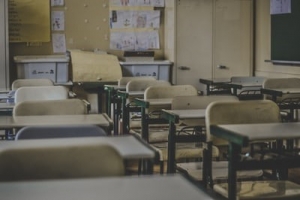Many parents and teachers are concerned their child might fall behind or disengage from school as a result of the disruption to school attendance and the continuity of their education. However, evidence from New Zealand and New Orleans suggests parents and teachers should not worry too much.
Schools in Christchurch, New Zealand, were closed for weeks following the 2011 earthquake. At that time New Zealand schools did not have access to the range of online learning that is available now. However, evidence from the New Zealand Qualifications Authority showed that student results in the final exams actually improved.
According to Professor John Hattie, then the adviser for the New Zealand Qualifications Authority, the difference was teachers focused on "what has to be learned" instead of getting through a lot of curriculum. Professor Hattie suggested that it was a similar story after Hurricane Katrina in New Orleans in 2005, when students missed up to seven weeks of school. Again, students "recovered quickly and actually began to see gains in test scores". So Professor Hattie’s message to parents is, “Let's not get stressed about it. When we get back to the old normal the recovery will be reasonably quick. You have to be amazed what teachers have done to turn the whole system around so that kids can work at home doing various things".
This viewpoint however contrasts with research findings about summer learning loss – or the summer slide – where students are known to lose some of the knowledge, skills and ability they acquired over the school year and teachers have to spend time re-teaching things that have been covered in the previous term before they can move on. For this reason parents are encouraged to get involved with learning over the summer vacation. The difference with the current pandemic is that it is impacting on all ages and stages of learners right across the world. The other difference is that teachers and parents are being called upon to compensate for the loss of in-school teaching through distance at-home learning, using all the resources at hand – digital, other media, pen and paper and the natural home environment to keep learners learning. But as expected, it will be students in lower socio-economic areas, those with learning disabilities, those whose parents do not have the time, resources or skills to support home schooling and those in developing countries without access to early childhood or secondary education, who will experience the impact most severely.
See:
https://www.abc.net.au/news/2020-04-17/will-missing-school-due-to-covid-19-matter-for-school-students/12154266https://www.cgdev.org/blog/equity-focused-approaches-learning-loss-during-covid-19
